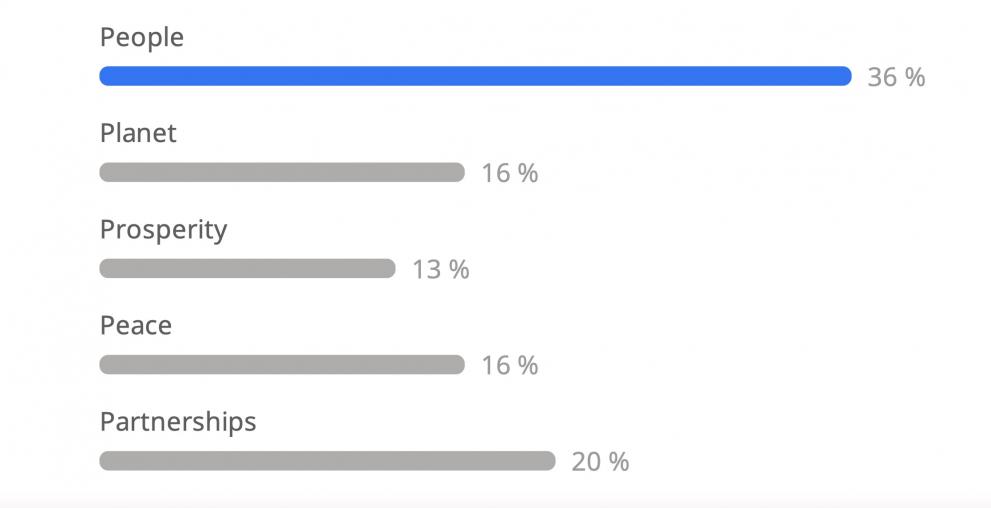
Students from four European Union universities are working together on possible ECIs having a focus on sustainable development. They are cooperating within the framework of an Erasmus+ project aiming to engage higher education students with participatory mechanisms to impact policy in the European Union and to provide them with the necessary skills and competences to promote their own citizens’ initiatives.
There is a lot to gain from these enterprises and the ‘Fairosene’ European citizens’ initiative is a great example of how intense and far reaching an initiative conducted by involved students may be. Let’s hope more will come from the ECI: from A to Z project.
Fully aware of this need, the University of Coimbra (Portugal), Georg-August University of Göttingen (Germany), Alexandru Ioan Cuza University of Iaşi (Romania) and the University of Vigo (Spain) decided to unite efforts and provide some of its students a unique academic experience in which they are stimulated to create their own European citizens’ initiative proposals.
Professors, tutors and peers not only acquire and share knowledge about this innovative participatory mechanism, but also find and discuss subjects of common concern they would wish for the European Union to develop.
So far, students have participated in introductory sessions on the ECI, which were held online due to the COVID-19 pandemic, and in an ECI Online Course, especially designed for higher education students from all fields.
The results of these activities have been absolutely impressive. The engagement of students and their interest in European affairs has been so far overwhelming, with more than 60 participants in the Introductory Sessions on ECI and 50 completing the first edition of the ECI online Course.
Also, their high expectations towards the project are truly challenging for the team. For example, students wish and hope (1) to learn more about the European Union and its policies; (2) to create change and to learn how to be active citizens; (3) to be able to work in international teams; (4) to meet people with different backgrounds, cultures and values; (5) to move on after the COVID-19 pandemic and travel to other European countries.
Their enthusiasm and collaborative skills have shown that they are inestimable pieces of the great patchwork that is the European Union and that the European Citizens’ Initiative is indeed a valuable tool for the promotion of an ever more active citizenship.
Image: The main concerns identified by the ‘ECI A to Z’ project participants
Now that some key team building and peer learning activities have been successfully carried out, eight international teams of students (with eight students each) are preparing for the final activity – the Model ECI – that will take place in Göttingen in March 2021. The teams will define a subject of common concern – aligned with nowadays societal challenges and the Sustainable Development Goals (SGDs) – that could be the basis for future European Citizens’ Initiatives and will publicly present it to other students, academics, stakeholders and policy-makers at the Model ECI.
It is interesting to mention that, during the Online Introductory Sessions on ECI, students have identified “people” as their main concern (the remaining options were “planet”, “prosperity”, “peace” and “partnership”), which is in line with the need to deepen a citizen-based European (and global) policy and to make better use (and further develop) the existing participatory instruments within the European Union.
Indeed, introducing significant elements of public participation into the system will ensure that it opens up to society (both citizens and civil society organisations) and makes public action more relevant, democratic and trustworthy.
But the truth is that, despite the fact that the European Union understands that citizen participation is a much-needed reality and an unnegotiable value and establishes a vast array of participation instruments (petitions, public consultations, citizen’s dialogues and the European Citizens’ Initiative), the consequences of this approach continue to be frail.
In the very recently available Eurobarometer about the Future of Europe, the vast majority of Europeans (92%) across all Member States demand that citizens’ voices are “taken more into account in decisions relating to the future of Europe”.
This generalised feeling has accompanied the European Union since its inception. And despite the fact that the European Union offers several points of access for influencing European policies, it seems not to have had a full effect in practice. It is therefore important that participation is seen both by public entities and by citizens not as a hurdle, but as a promise: a promise of effective joint work and joint results. If this is not the case, citizens and civil society organizations will not be attracted or will even dissuaded from making their voices heard.
As such, the involvement of youth is essential to overturn the state of things, as the ECI: From A to Z project and others (for instance https://participationpool.eu/resource/youth-citizenship-and-the-europea…) try to show.
The project “The European Citizens' Initiative: A Tool for Engagement and Active Citizenship” (acronym ECI: From A to Z) is funded by the Erasmus + programme of the European Commission (Agreement Number 2020-I-PT01-KA203-078546),
To learn more about the ECI: From A to Z project, visit us at https://eci-az.eu; also, follow us on Facebook, Twitter, and Instagram (@eciatoz), using the hashtags #ECIfromAtoZ and #EUTakeTheInitiative.
Contributors
Dulce LopesDulce Lopes is a Professor at the Faculty of Law of the University of Coimbra. Worked for the Portuguese Presidency of the Council of Ministers, the European Parliament and the Catholique University of Lille and was Director of Studies in English at the Hague Academy of International Law (2018). She is the coordinator for the Erasmus+ project ECI: From A to Z.
Further references at: https://www.cienciavitae.pt/E013-0BE9-8B08
The opinions expressed on the ECI Forum reflect solely the point of view of their authors and can in no way be taken to reflect the position of the European Commission or of the European Union.





Leave a comment